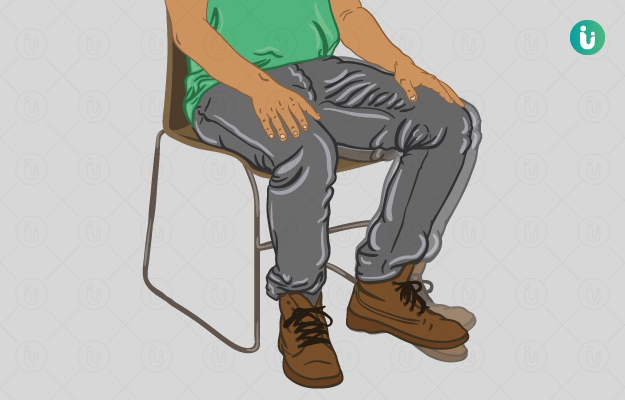What is Restlessness?
Restlessness is the inability to remain at one place or do one thing continuously without moving. It is a broad term covering a wide range of signs and symptoms and may manifest differently in different people. It has both physical and psychological implications.
What are its main associated signs and symptoms?
- Typically, restlessness looks like hyperactivity. This means that a person cannot sit in the same place or position and constantly needs to move or change places.
- It is difficult to engage a restless person in a conversation or a task for too long.
- People who have restlessness may also get painful cramps in the legs when they are sitting.
- Tingling sensation, numbness and tremors in the limbs are a few other signs.
- A restless person usually has difficulty in sleeping, along with frequent bouts of anxiety and disorientation.
- In severe cases, one may experience palpitations and sweating too.
What are the main causes?
- The most common cause of restlessness is drug-related. It is the side effect of many medications given for conditions like attention deficit hyperactivity disorder (ADHD) and asthma as well as several sedatives and anti-emetics.
- Another common cause of restlessness is caffeine addiction or excessive use of products containing caffeine like too much tea or coffee.
- Restlessness occurs in association with neurological conditions like schizophrenia, ADHD, dementia and anxiety.
- Hormonal imbalance in hyperthyroidism can also cause increased restlessness in a person.
How is it diagnosed and treated?
- Restlessness is relative for each individual. It is diagnosed by an expert based on the symptoms and past medical history.
- In order to arrive at a diagnosis, it is important to inform your doctor about your lifestyle and the medications you are on, if any, followed by a physical examination.
- Rather than pharmacological management, treatment of restlessness comprises changes in lifestyle and habits.
- The doctor will advise you to maintain a consistent sleep schedule and get adequate rest at night.
- It is advisable to reduce caffeine intake to improve restlessness.
- If the condition is due to a medicine, it is very important to consult your doctor before you stop or modify the dosage of the medicine, as this can have undue side effects on the body.
- In case of medical conditions like ADHD, or schizophrenia appropriate sedatives or tranquillizers might be prescribed.

 Doctors for Restlessness
Doctors for Restlessness  OTC Medicines for Restlessness
OTC Medicines for Restlessness
 Restlessness articles
Restlessness articles

 Home Remedies for Restlessness
Home Remedies for Restlessness







 Dr. Ayush Pandey
Dr. Ayush Pandey











